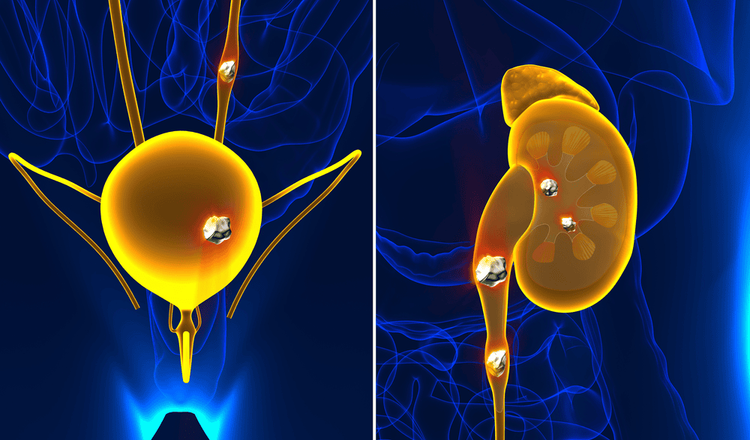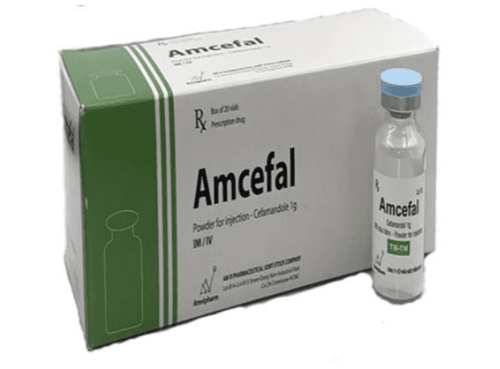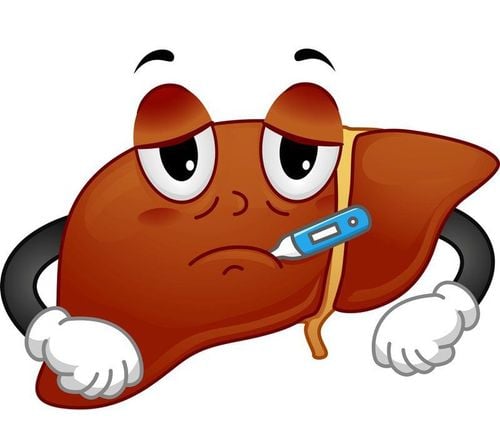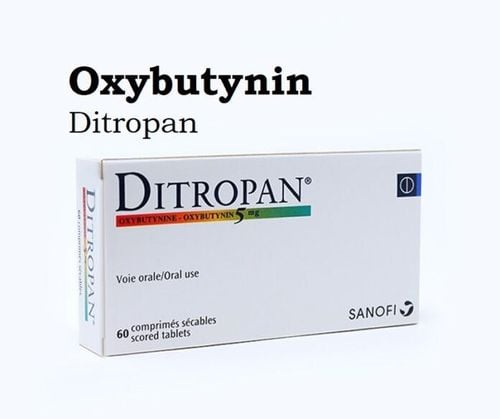This is an automatically translated article.
The article is professionally consulted by Master, Doctor Nguyen Thi Thanh Thuy - Endocrinologist - Dialysis - Kidney Transplant - Department of Examination & Internal Medicine - Vinmec Central Park International General Hospital.Urinary tract infection (UTI) is an infection that begins in the urinary tract and then enters the bloodstream causing symptoms of systemic infection.
1. What is the definition of bacteremia from a urinary tract infection?
Sepsis from urinary tract infection was defined by determining the results of blood cultures and urine cultures with the same pathogen. Patients should be diagnosed early, especially in the case of complicated urinary tract infections.2. Symptoms of sepsis
Most cases of severe sepsis involve pulmonary (50%) or abdominal (24%), urinary tract involvement in only about 5%. Manifestations of bacteremia from urinary tract infections are not different from those of sepsis from non-genital sources.Sepsis is defined when the patient has an early stage of systemic inflammatory response syndrome including: fever or hypothermia, leukopenia or leukopenia, tachycardia, and tachypnea as events. the first of massive multi-organ failure.
Severe sepsis is defined as symptoms of organ dysfunction and septic shock occurs when hypotension is accompanied by tissue hypoxia. Severe sepsis and septic shock are serious clinical situations with a mortality rate of 20-42% or possibly higher depending on the resuscitative treatment conditions of each hospital and depending on the patient's condition: diagnosis: diagnosis and treatment sooner or later.

Bệnh nhân ở giai đoạn đáp ứng viêm toàn thân có thể bị sốt hoặc hạ thân nhiệt
3. Causes of bacteremia from urinary tract infections
Microorganisms from the urinary tract infection are retrograde into the bloodstream and lymphatics. When bacteria enter the bloodstream, bacteremia is formed. The risk of bacteremia increases when there is a serious urinary tract infection such as: pyelonephritis and acute bacterial prostatitis, urinary tract obstruction... The disease can be acquired from the community or from in the hospital:3.1. Community-Acquired Infection Community-acquired infection occurs in only a few cases: infection in immunocompromised patients without leukopenia, pre-existing renal disease, or structural abnormalities of the urinary tract. urinary.
Common pathogenic microorganisms isolated in the blood and urine of patients such as: Escherichia coli, Proteus mirabilis, Klebsiella, Enterococci (group D streptococci), group B streptococci.
Predisposing clinical factors for The disease occurs are:
Cystitis on immunosuppressed sites without leukopenia such as: diabetes mellitus, lupus erythematosus, alcoholism, multiple myeloma, corticosteroid therapy... The patient has an obstruction One side or part of the urinary tract Pre-existing kidney disease Pre-existing kidney or bladder stones. The disease can progress to septic shock with systemic symptoms and hypotension. Febrile patients with leukopenia (eg, cancer patients undergoing chemotherapy) rarely develop urinary tract infections or progress to sepsis.
3.2. Hospital-Acquired Infections Commonly caused by catheters or devices in non-neutropenic patients. Urinary tract infection caused by catheterization does not cause sepsis in normal people (i.e. people without bacteriuria).
However, urinary catheterization procedures in patients with existing bacteriuria can cause severe sepsis with systemic symptoms and hypotension. Urinary tract infections often result in sepsis when the patient has structural abnormalities of the urogenital tract such as:
Congenital abnormalities of the urine collection system Urinary stones Unilateral or bilateral obstruction due to causes internal or external kernel. The bacteria involved in hospital-acquired infections are aerobic gram-negative bacteria or enterococci.
Most common pathogens are: Escherichia coli, Klebsiella, Enterococci. Less common pathogens are: Serratia, Enterobacter, Providencia, Citrobacter, Acinetobacter baumanii, Pseudomonas sp., Pseudomonas aeruginosa. The rarer agents are Staphylococcus saprophyticus, coagulase negative Staphylococcus, MRSA...

Sỏi niệu là yếu tố thuận lợi gây nhiễm khuẩn huyết từ nhiễm khuẩn đường tiết niệu
4. Prevention
The following hospital-acquired infection prevention methods are very effective for prevention:Isolation of infected patients with multi-resistant bacteria to avoid cross-contamination. Reduce the number of days in the hospital. Use antibiotics with caution to prevent and treat existing infections. The antibiotic chosen should be compatible with those that predominate in the hospital microbial ecology. Nosocomial infections increase with urethro-vesical catheterization and ureteral stenting. Prophylactic antibiotics failed to prevent colonization of stents, with an infection rate of 100% for patients with permanent ureteral stenting and 70% for patients with temporary ureteral stenting. Remove the catheter as soon as possible depending on the situation. Use a closed urinary drainage system properly, minimizing leakage, eg: collection of urine samples, emptying of urine... Use the least invasive method to clear the blockage until the patient is stable . Vinmec International General Hospital offers a Urinary Pathology Screening Package with many utilities, including: Early detection of possible urinary diseases. Especially prostate diseases (benign prostatic hypertrophy, prostate cancer). The pathology of urinary stones .... thereby helping customers take preventive measures.
When registering for the urological screening package, customers will be examined by a urologist, ultrasound, urine culture... to detect the disease accurately and promptly.
Master. Doctor. Nguyen Thi Thanh Thuy is a nephrologist with more than 15 years of experience in diagnosing and treating medical kidney disease, hemodialysis, peritoneal dialysis, pre-transplant screening and post-transplant monitoring. Currently, Dr. Thuy is working at the Department of General Internal Medicine - Vinmec Central Park International General Hospital.
Please dial HOTLINE for more information or register for an appointment HERE. Download MyVinmec app to make appointments faster and to manage your bookings easily.













